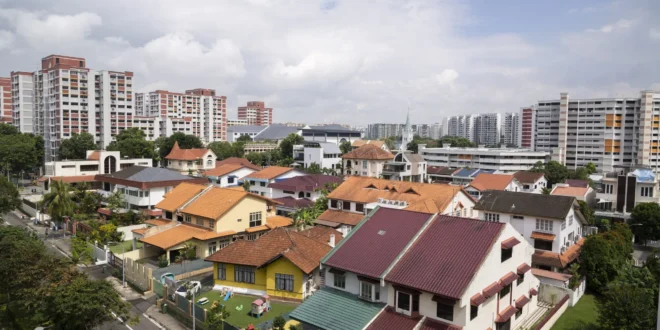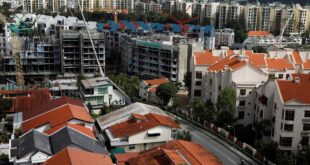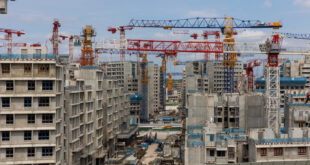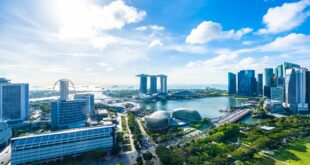Singapore’s real estate market has long been one of the most sought-after in Asia. With a reputation for stability, strong capital appreciation, and a thriving economy, it’s no surprise that foreigners often look to invest in properties here. But as with any real estate market, there are rules to follow, taxes to consider, and financial planning to do.
If you’re thinking about buying property in Singapore as a foreigner, let’s break things down so you can move forward with confidence.
Can Foreigners Buy Property in Singapore?
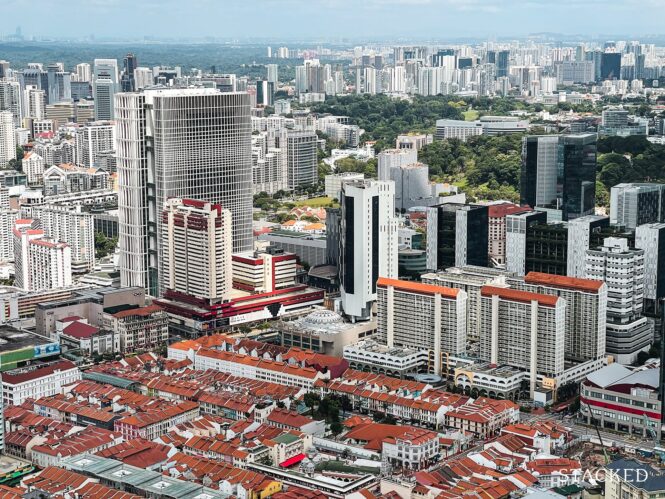
Yes, but it’s not as straightforward as in some other countries. Singapore has specific restrictions in place to ensure that local citizens and permanent residents (PRs) have access to affordable housing, while also allowing foreigners to invest in certain types of properties.
Properties You Can Buy (Without Restrictions)
If you’re a foreigner, you can freely purchase:
- Private Condominiums – These are by far the most popular choice for foreign buyers, offering great facilities, security, and a vibrant community.
- Commercial Properties – If you’re looking to invest in office spaces, retail units, or industrial buildings, there are no restrictions.
- Executive Condominiums (After 10 Years) – These start as subsidized housing for Singaporeans but become fully private after a decade, at which point foreigners can buy them.
Properties That Require Government Approval
Some types of properties need permission from the Singapore Land Authority (SLA), and approval is not guaranteed:
- Landed Homes – Bungalows, terrace houses, and semi-detached houses fall under this category.
- HDB Flats – Public housing units are off-limits to foreigners.
- Vacant Land – If you plan to buy land to build on, you’ll need SLA approval.
The government prioritizes those who have contributed significantly to Singapore’s economy, so getting approval for landed property isn’t easy unless you’re a high-net-worth individual with a strong business presence in the country.
How Much Do You Need to Buy Property in Singapore?
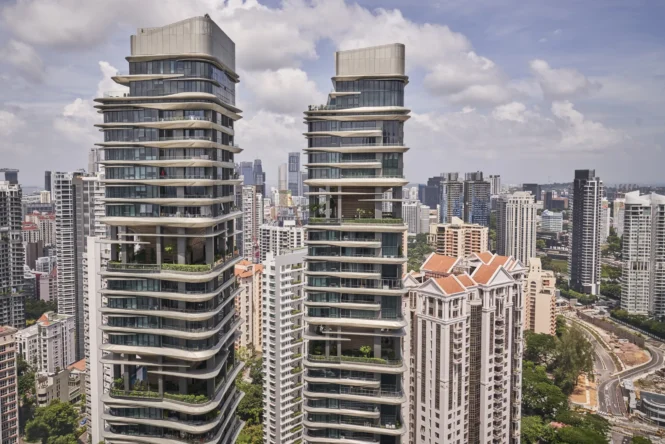
Singapore is one of the most expensive property markets in the world, and foreign buyers face additional costs. Before jumping in, it’s essential to budget properly.
Minimum Down Payment
Foreigners need to make a minimum down payment of 25% of the property’s purchase price. Out of this, at least 5% must be in cash. The remaining 20% can be paid using cash or financing.
Loan-to-Value (LTV) Ratio
Banks in Singapore will finance up to 75% of the property price, but this percentage can decrease if you already have existing loans. Here’s how it works:
- First Property Loan – Up to 75% financing.
- Second Property Loan – Maximum 45% financing.
- Third & Subsequent Loans – Maximum 35% financing.
Your financial standing, income, and credit history also play a role in determining how much financing you can get.
Additional Buyer’s Stamp Duty (ABSD)
This is the biggest hurdle for foreign buyers. As of 2023, foreigners must pay 60% ABSD on any residential property purchase. This is in addition to the standard Buyer’s Stamp Duty (BSD), which applies to all buyers:
- First SGD 180,000 → 1%
- Next SGD 180,000 → 2%
- Next SGD 640,000 → 3%
- Above SGD 1,000,000 → 4%
For example, if you’re buying a SGD 2 million condo:
- BSD = SGD 64,600
- ABSD (60%) = SGD 1.2 million
- Total tax payable = SGD 1,264,600
That’s a huge amount, which is why many foreigners consider alternatives like investing under a company structure or applying for permanent residency before buying.
The Step-by-Step Buying Process
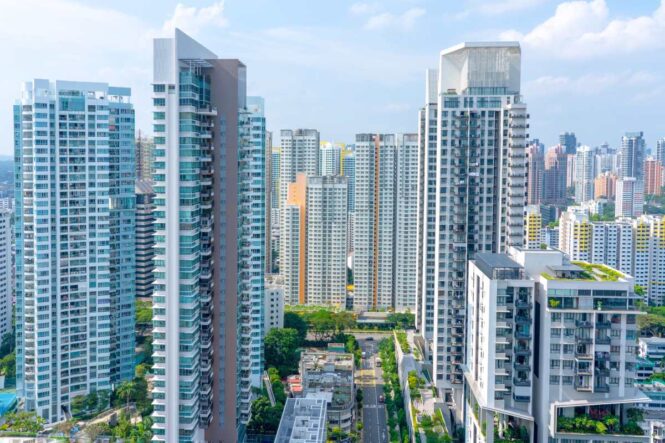
Now that you know what’s possible, let’s go through the actual process of purchasing a property in Singapore.
1. Set Your Budget and Financing Plan
Start by working out:
- Your total available funds for down payment and taxes.
- How much financing you can secure.
- Expected rental yield (if buying as an investment).
- Other costs, including legal fees, agent commissions, and maintenance fees.
2. Find the Right Property
This is where things get exciting. Singapore offers a range of luxury condos, mixed-use developments, and waterfront properties. If you’re looking for a premium residential project in a prime location, take a look at Parktown Residence, one of the latest high-end developments in the city.
Things to consider when choosing a property:
- Location – Proximity to MRT stations, business hubs, and lifestyle amenities.
- Price Trends – Look at historical data to see if the area has good capital appreciation.
- Rental Demand – If renting it out, check the typical rental yields.
3. Engage Professionals
You’ll want:
- A real estate agent – To help you find the right unit and negotiate terms.
- A lawyer – To ensure contracts are legally sound.
- A mortgage broker – To secure the best financing terms.
4. Secure an Option to Purchase (OTP)
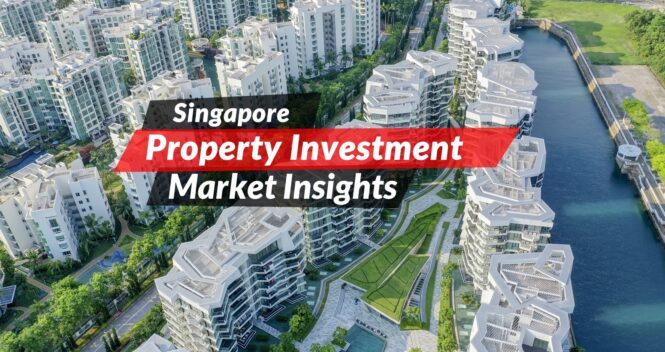
Once you’ve found the right property, the seller will issue an Option to Purchase (OTP). You’ll need to pay 1% of the purchase price as a booking fee to hold the unit.
Within 14 days, you must sign the OTP and pay another 4% of the price. This is when the agreement becomes legally binding.
5. Handle Legalities and Taxes
Your lawyer will conduct title searches, prepare documents, and arrange stamp duty payments. Expect to pay:
- BSD (1-4%)
- ABSD (60% for foreigners)
- Legal Fees (SGD 2,500 – SGD 5,000)
6. Finalize Payment & Transfer Ownership
After all legal matters are cleared, the remaining funds (usually via your home loan) are transferred, and ownership is legally recorded. The completion period takes around 8 to 12 weeks from signing the OTP.
Is It Worth Buying Property in Singapore as a Foreigner?
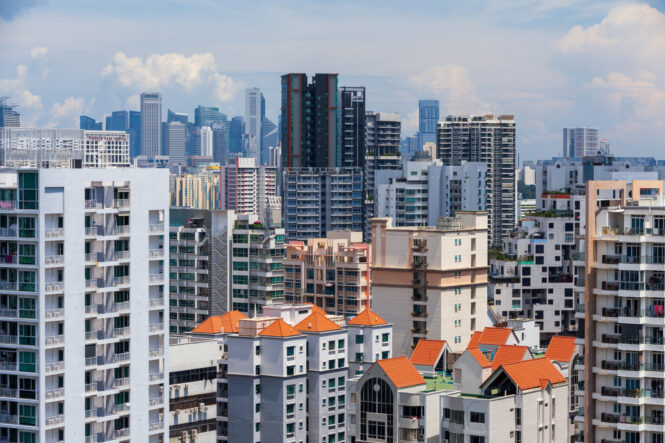
There are pros and cons, so let’s break them down.
Pros
Stable Market – One of the most resilient real estate markets globally.
High Rental Demand – Especially for condos in prime districts.
Strong Capital Growth – Prices have consistently appreciated over the years. Political & Economic Stability – Singapore remains a top choice for international investors.
Cons
High ABSD – The 60% tax significantly raises the cost.
Limited Property Choices – Landed properties and HDBs are off-limits.
Expensive – One of the priciest property markets in the world.
If you’re looking at Singapore purely from an investment perspective, rental yields might not be as high as other Asian cities. But for long-term investors, the country’s stable economy and strong legal framework make it a safe bet.
Final Thoughts
Singapore is a vibrant, modern city-state known for its stunning skyline, world-class infrastructure, and exceptional quality of life. Beyond its reputation as a global financial hub, it also boasts beautiful beaches like Sentosa, East Coast Park, and Lazarus Island, offering a perfect balance between urban convenience and seaside relaxation.
Buying property in Singapore as a foreigner isn’t impossible, but it requires careful planning. Between high taxes, financing restrictions, and legal procedures, it’s crucial to weigh your options.
The key is being well-informed, having the right professionals by your side, and choosing a property that aligns with your financial goals. Whether you’re investing, relocating, or securing a second home, Singapore’s real estate market continues to be one of the most attractive in Asia.
Got questions? Drop them below—I’d love to hear your thoughts!
 Imagup General Magazine 2024
Imagup General Magazine 2024
